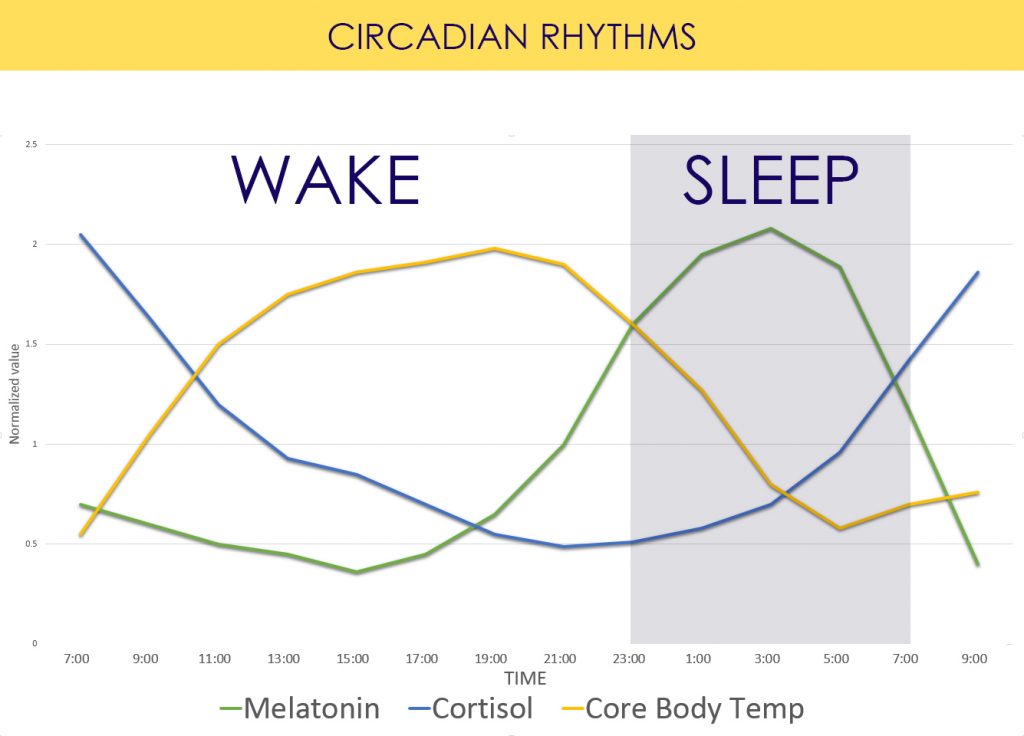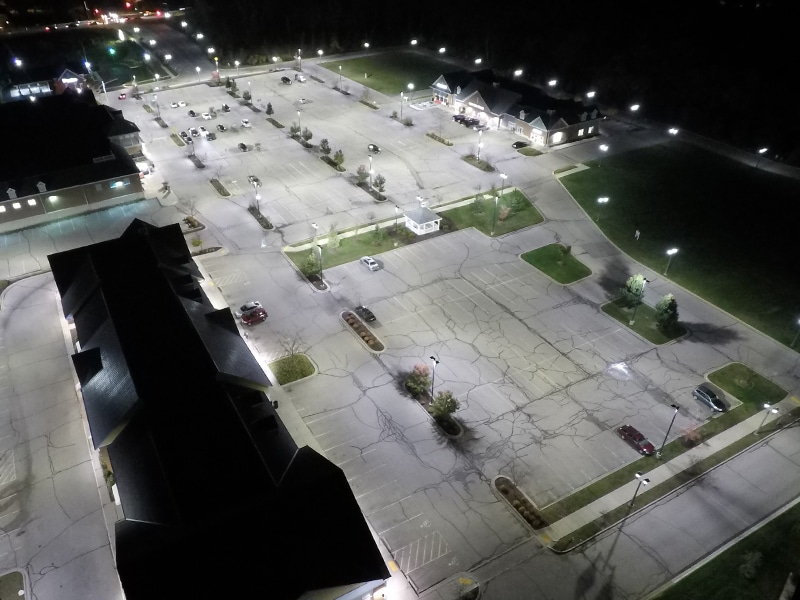What is Circadian Rhythm?
Circadian Rhythm is our body’s internal alarm clock that tells us when it’s naturally time to wake up in the morning and get sleepy at night. These rhythms help regulate many physiological processes and are most dominated by the external cues of light. Circadian Rhythms make us feel more alert or sleepy at different points in the day.
How does Circadian Rhythm effect human health?
Circadian Rhythms change throughout your lifetime, mostly in direct connection to your age. For example, in the teenage years of our lives we experience delay in our rhythms causing an alertness later in the evening hours. Because of this, teens are not getting the amount of recommended sleep before they head off to school because they are falling asleep later and waking up earlier than the cue of their rhythms. This is better known as Sleep Deprivation. If you are not allowing your natural Circadian Rhythm to “dominate” your sleeping patterns, this could lead to negative health effects. Maintaining consistent types of light throughout each day is essential to keeping your mind happy and healthy.
How does light affect the Circadian process?
Light directly affects the process by telling the body when to secrete the hormone Melatonin, and transversely suppress it, throughout the day.
“Recent research has found that light wavelengths between the ranges of 440-480nm spark a signal to our body telling it to suppress the production of melatonin. This phenomenon helps us become alert in the morning and get sleepy at night. Morning light circadian stimulation is important as lack of exposure delays evening dim light melatonin onset. Morning light is also a key factor in stimulating the cortisol awakening response. Delaying dim light melatonin onset acts to advance the circadian clock making it more difficult to fall asleep and wake up the next morning. The amount and duration that we are exposed to blue light during the day effects our sensitivity to it at night.” (Ketra, Circadian Lighting and the Circadian Stimulus Score.)
Here’s a fun video by SciShow that describes more about Circadian Rhythms.
“Disruptions to our natural rhythms may lead to health issues like: diabetes, obesity, depression, and dementia. It is also believed that up to 15% of our genes may be regulated by circadian rhythms.”








